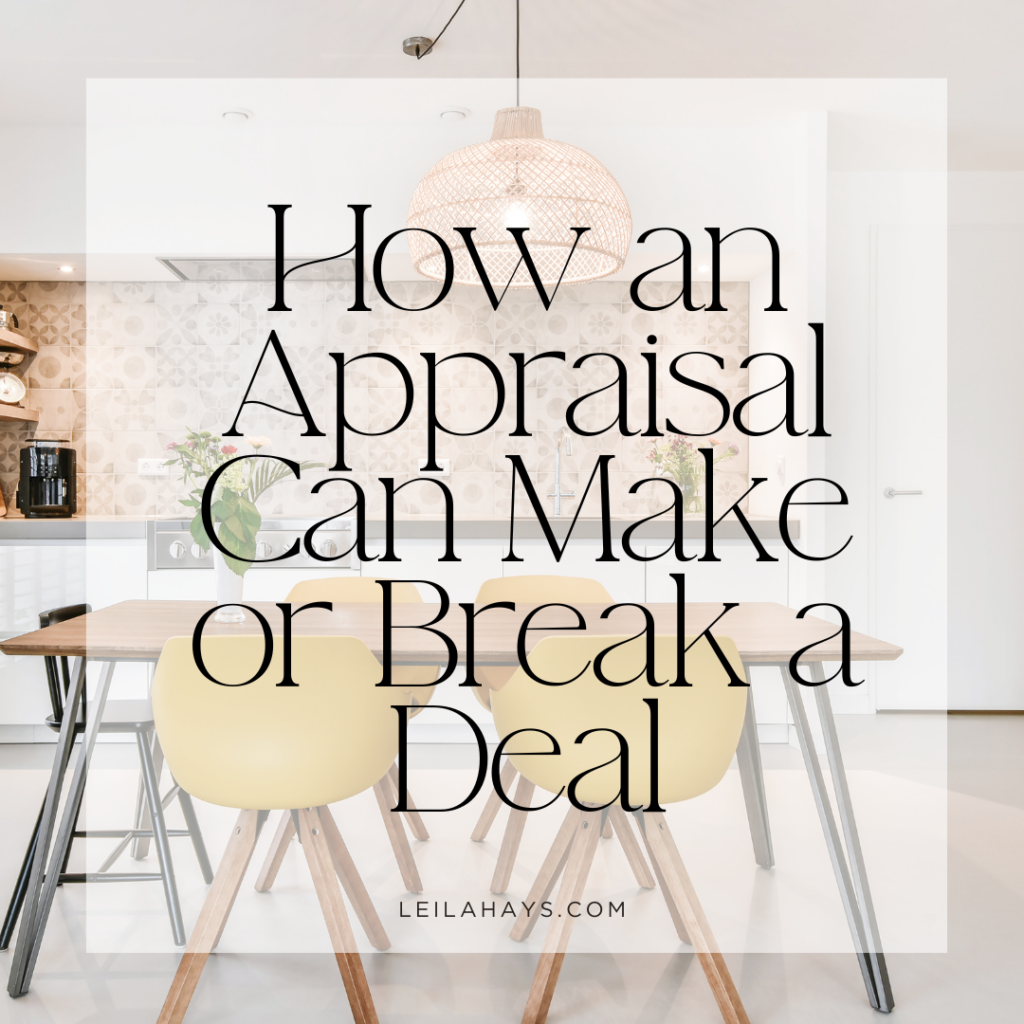No home sale is ever set in stone until you’ve inked the deal. That’s why you see those real estate signs switch from “Pending” to “Sold” at the last minute. There’s a whole lot that goes on behind the scenes once a buyer’s offer is accepted by the seller, and a big part of that is the home appraisal ordered by the lender.

But there’s a catch: if the appraised value falls short of the contract price, it can potentially kill the whole deal. That means no new home for the buyer and no equity for the seller, even in a bustling market like Houston, where bidding wars are the norm in some neighborhoods (like The Woodlands and Pearland). Sometimes, prices get inflated beyond what recent sales suggest the home is worth.
So, what’s a buyer or seller to do in the face of a low appraisal? This post includes savvy strategies and insights to help you tackle one of the most crucial yet often overlooked parts of a home sale—the appraisal.
Home Appraisal 101
Let’s start with the basics of the appraisal process and why it’s so important for a financed purchase. Lenders need to make sure the amount of money they’re lending is something they can get back out if they have to foreclose. That’s why they hire licensed appraisers to analyze out the property’s condition and compare it with recent sales nearby, aka “comps.” These comparisons, along with market trends and other factors, help an appraiser determine their opinion of the home’s current value.
Since no two houses are alike, appraisers adjust their assessments for features like a kitchen upgrade or a fantastic view. But not every renovation adds extra value to the price tag, although they may help the house sell faster—think fresh landscaping or a fresh paint color.
Changes in Appraisal Law Process
A few years back, the appraisal game changed with the introduction of the Home Valuation Code of Conduct. This was meant to give appraisers more independence from real estate agents and lenders. But it’s not perfect, especially when appraisers aren’t local and might not know the market as well.
What a Buyer Can Do
If you’re staring down a low appraisal, here are some potential solutions:
- Decide if the home is still worth it at a lower price or if the appraisal is just out of touch with the market.
- Chat with the seller—they might be open to dropping the price or providing a credit for closing costs.
- Discuss with your lender the option of disputing the appraisal’s accuracy or switch lenders for a fresh perspective.
But keep in mind, adding an appraisal contingency to an offer might weaken your it in a hot market.
What a Seller Can Do
If the appraisal falls short, sellers have a few options:
- Fill in the appraiser on any recent upgrades to make sure they’re not overlooked.
- Review at the appraisal and speak up if you spot any adjustments that don’t make sense.
- Work out a deal with the buyer to bridge the gap or provide another incentive to keep the deal going without your losing a lot of your equity.
- Think about getting a second appraisal, but know it might slow things down and takes away from the bottom line.
And if you’ve got an all-cash buyer, none of these appraisal worries apply.
So there you have it—the lowdown on appraisals. If you’re feeling lost or overwhelmed, email me, and we can set up a time to talk.. Buying or selling a home doesn’t have to be stressful—I’m here to help you every step of the way.
Hi, there!
I'm Leila Hays, and I'm on a mission to help you buy and sell at the same time without paying two mortgages or moving twice. If you're planning to make a move in the next year, it's not too early to plan. Click the link below to get started.
Contact
832-402-6040
9303 New Trails Dr. Ste. 165
The Woodlands, TX 77381
leila@leilahays.com
what you need to know about buying or building
Homes You Might Love
(my listings)
what you need to know about owning or selling
All Articles
schedule your free consultation